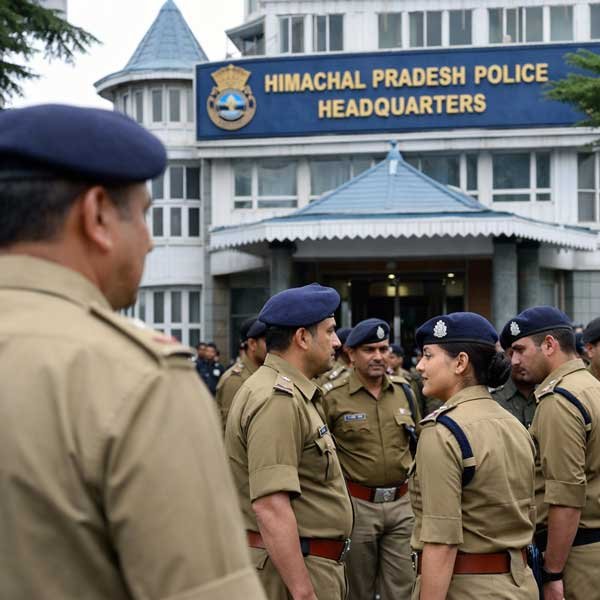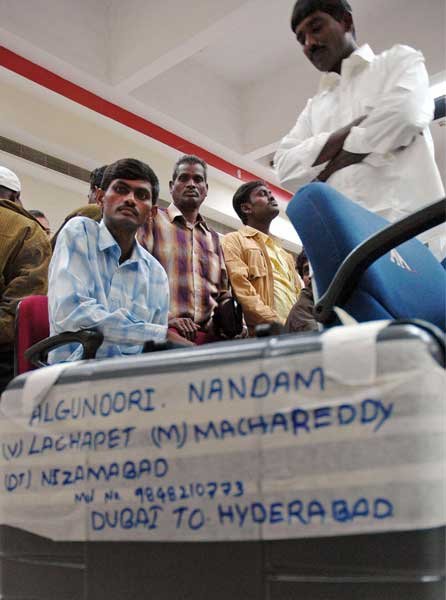
Photo used for indicative purpose only. Source: Internet
Powering confusion! Smart meter scheme raises concerns for HPSEB’s financial stability
Shimla, July 4
Himachal Pradesh’s vast potential for hydro power generation has attracted major corporate houses, but their involvement in the sector has led to severe economic distress and numerous legal disputes. The negative impact of these corporate entities extends beyond the generation sector, as their influence now extends to power distribution, causing further harm to the state’s economy and ecology. Lobbying efforts disguised as power sector reforms are taking a toll on Himachal Pradesh Electricity Board Limited (HPSEB), which has seen a significant reduction in its workforce from around 50,000 to just 14,000 employees. The board is currently incurring recurring book value losses of around Rs 1,700 Crore, with projections indicating an increase to Rs 2,400 Crore due to an additional burden of Rs 830 Crore.
Under pressure from the Central government, the State government of Himachal Pradesh was coerced into pursuing public-private partnership (PPP) projects, making HPSEB vulnerable to corporate interests. While the power transition in the state temporarily delayed these plans, the incompetence of political leaders and their inclination towards such deals raises concerns about the future of HPSEB. Employee trade unions have alerted the Chief Minister about the dangers of allowing large corporate entities into the distribution companies (discom).
Recent developments in Uttar Pradesh, where the Aditya Yoginath government cancelled a tender worth Rs 5,400 crore for the supply of smart meters by the Adani Group, have sparked discussions. In Himachal Pradesh, former Managing Director of HPSEB, Pankaj Dadwal, cancelled tenders for a similar scheme involving the replacement of three million meters. The companies bidding for the project failed to meet the standard bidding criteria, and their quoted rates were deemed too high. Dadwal stated that clarifications were sought from the firms, and their responses would be reviewed before any further action is taken.
A former Chief Engineer of the State Electricity Board has questioned the Himachal Pradesh government’s ability to afford the smart meter scheme, particularly considering the unsuccessful pilot project in Sirmaur. The recent controversy surrounding Rakesh Meena, who assumed the position of MD of the Board after allegations of kickbacks from a private power project, has also raised concerns. While the Union Power Minister R K Singh and Chief Minister Sukhvinder Singh Sukhu recently met, their discussions mainly focused on calming local agitations against upcoming power projects. No clear statement was made regarding the smart meter deal, although sources within the HPSEB board confirmed that the management had persuaded the Chief Minister to proceed with the deal, suggesting it will not be scrapped, even as the joint forum of electricity employees and engineers have requested government to rethink about it. The HPSEB board’s spokesperson stated that the smart meter scheme will continue.
Also read:HPSEB Ltd Employees/Engineers demand Old Pension and Smart metering review
On April 18, 2023, HPSEB unions, led by General Secretary Hira Lal Verma, submitted a memorandum to MD Rakesh Meena, exposing the nexus between previous state governments, the central government, and the state bureaucracy in signing the deal. The unions highlighted HPSEBL’s financial hardship, with an accumulated loss of Rs 1,810 Crore, and warned that implementing such an expensive deal would further burden the organization, either impacting electricity consumers or the state government. Union employees, who work in challenging weather conditions and sometimes risk their lives to serve customers in remote areas, argue that smart metering would be impractical and more expensive in hilly states like Himachal Pradesh. They urge a review of the tender and recommend implementing smart metering based on its merits and the interests of electricity consumers in the state.
Also read:HPSEB union warn tooth and nail opposition against tabling of Electricity (amendement) bill 2021
The HPSEBL previously attempted smart metering on a pilot basis in 2017, investing over Rs 40 Crore in a project in Kala Amb, Sirmour, which failed miserably. Additionally, electronic metering was implemented in feeders and distribution transformers for energy audits under central schemes, but the targets were not achieved. The lack of accountability for the officials involved in these decisions and their implementation is a major concern. Similarly, the installation of Supervisory Control and Data Acquisition (SCADA) systems in unmanned 33 kV substations resulted in increased costs, but these systems are not operational anywhere in HPSEBL, despite over Rs 300 Crore being spent on them. Now, these unsuccessful initiatives are being proposed under the Revamped Distribution Sector Scheme (RDSS), raising doubts about their potential success.
The proposed smart metering project is planned under a public-private partnership (PPP) model, with a third party handling major billing activities for high electricity consumers. This arrangement would weaken the discom and appears to serve the interests of private players rather than the state and electricity consumers. The unions suggest that it would have been more prudent for HPSEBL to implement smart metering gradually on its own, using government budgetary support (GBS) to fund the project as targets are achieved. However, the per-node cost estimates for the RDSS bidding process indicate significant cost overruns, with total expenditures expected to reach approximately Rs 2,600 Crore, while GBS is projected to be only Rs 360 Crore, subject to target achievement. Furthermore, the regulator has already rejected passing on the smart metering costs to consumers, leaving HPSEBL to bear the burden. The recent replacement of mechanical meters throughout the state with electronic meters will also result in additional expenses for their disposal.
The article suggests that political and corporate interests are at odds in this situation. The Sukhvinder Singh government in Himachal Pradesh and the Narendra Modi government are both facing challenges, with the former’s electoral promise of 300 units of free power and the latter’s upcoming elections. If the government were to implement the free power policy honestly, nearly all 26 lakh domestic meter holders would have zero bills, rendering meter readings unnecessary. The recovery of Rs 3,700 Crore from the RDSS scheme may only burden HPSEBL further, which is already struggling with liabilities and escalating total expenditure and capital expenses. This raises concerns that HPSEBL, despite being power surplus, may become powerless in the near future. The bureaucracy appears to be the main beneficiary of such deals, while the burden falls on the consumers who have to pay for the meters, power, and the functioning of the system.
Evidently, it seems that the HPSEB’s financial crisis is worsening due to the mismanagement of the smart meter and prepaid billing initiatives. The interests of corporate entities and bureaucracy are overshadowing the welfare of the state and electricity consumers. It is crucial that the government reviews the tender process and implements smart metering in a phased manner that aligns with the state’s requirements, protecting the interests of HPSEBL and its consumers.

The HimachalScape Bureau comprises seasoned journalists from Himachal Pradesh with over 25 years of experience in leading media conglomerates such as The Times of India and United News of India. Known for their in-depth regional insights, the team brings credible, research-driven, and balanced reportage on Himachal’s socio-political and developmental landscape.











पूरे देश में Discom सबसे ज्यादा लॉस में है ।
जेनरेशन और ट्रांसमिशन कंपनियों की हालत फिर भी ठीक है। Losses दो तरह के है एक टेक्निकल लॉसेस दूसरा कमर्शियल लॉस । स्मार्ट मीटिंग शुरुआत में महंगा लग सकता है मगर सही से इसे इंप्लीमेंट किया जाए तो डिस्कॉम को अपने commerical losses कम करने में बहुत मदद मिलेगी।